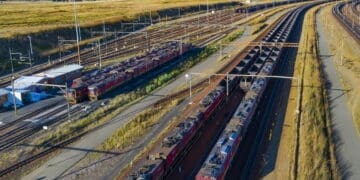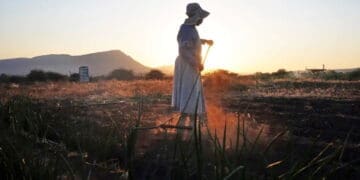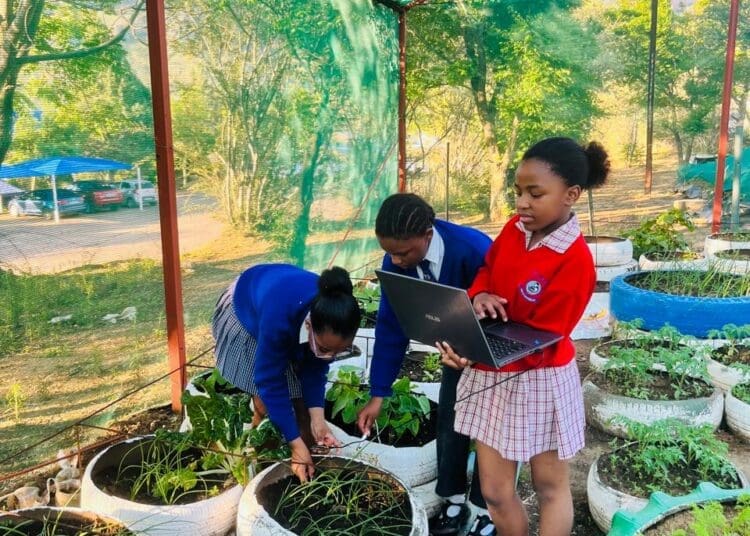A group of schoolgirls from Sentinel Primary School in Qwa Qwa, Free State, are showing how technology can change even traditional fields. Their project, which combines coding and robotics with small-scale farming, has earned them a spot to represent South Africa in Singapore.
The six learners, Lereko Mokhehle, Mpolokeng Makgohlo, Mosa Motsoeneng, Tatyana Mosia, Thlonofatso Motsieloa, and Bohlokoa Finger, developed a cost-effective system that uses microbit sensors to monitor soil fertility, water pH levels, and moisture content, enabling farmers to make informed decisions about when and how to irrigate.
The Idea was born out of a concern for hunger among their classmates. Mokhehle said they wanted to address a problem they saw every day.
“We realised that many children in our school come to school hungry, so we decided to come up with a project that uses robotic solutions and agriculture to grow plants,” she told Vutivi News.
Their system uses sensors such as soil moisture and TDS sensors to monitor crop and soil conditions after conducting a soil manipulation experiment.
Makgohlo explained that the data collected helps determine soil fertility and enables smart irrigation, which adjusts watering based on the type of plant and its moisture needs at any point.
“It’s amazing to see the plants grow better because of the system we built,” Makgohlo said.
According to Motsoeneng, the toughest part was mastering the technology.
“The coding part was the most challenging,” she admitted. “Most of the time, the sensors would not work, and we would have to restart the code. But when it finally worked, it felt like magic.”
Through their experimentation with different composts and a controlled incubation process, the team succeeded in germinating fruits and vegetables that normally cannot survive Qwa’s harsh climate. Finger, because of that, they’re proud of their work.
“We tried many types of compost, and it was exciting when the seeds sprouted. It showed that our work could really make a difference.”
Their garden now supplements the school’s feeding scheme, providing organic vegetables and fruits for over 1,000 learners, with some produce going to less privileged learners to take home.
Their teacher, Letlaka Mphuthi, has been a guiding force behind the project.
“I usually ask learners to identify problems they want to solve in our area using robotics,” he said.
“One idea I fell in love with was their idea to turn the school’s garden into an autonomous system. We used modern agricultural systems, sensors the kids learn about in class, and recyclable materials to make it cost-effective.”
Mphuthi said the team plans to build on their success.
“We want to introduce new ways to grow plants, such as hydroponics using just water, gradually adding UV light and other innovations. We also hope to expand and motivate more schools to have their own sustainable farms,” Mphuthi said.
For the learners, the experience has been life changing.
“We feel very excited and proud about our project because the school is now saving money on food expenses,” Motsieloa added.
“I never imagined that a small school project could reach this level. Representing South Africa in Singapore is a dream come true.”































































